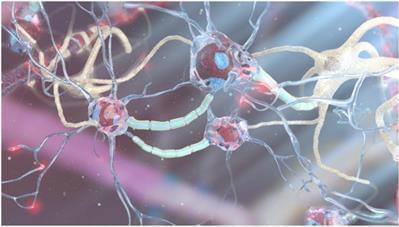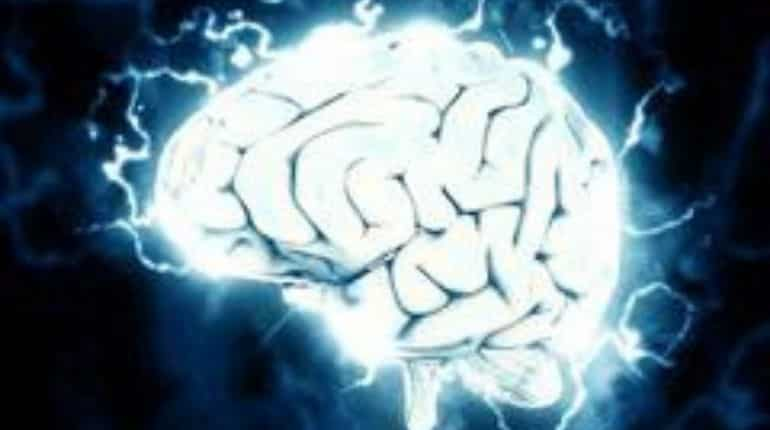Discover AI school safety solutions with security technology from Xtract One. Protect your educational institution with cutting-edge threat detection solutions.



Study links dopamine to learning via optogenetics:
A new study reveals dopamine’s role in animal behavior having potential applications in education and artificial intelligence.
Recent research published in Nature Communications from the Nuffield Department of Clinical Neurosciences at the University of Oxford has identified 15 modifiable risk factors for dementia, and of those diabetes, alcohol intake, and traffic-related air pollution are the most harmful.
Previous research from this group revealed an area of weakness in the brain of a specific network of higher-order regions that only develop later in adolescence but also display earlier degeneration in old age, and they showed that this brain network is particularly vulnerable to Alzheimer’s disease and schizophrenia. This study investigated genetic and modifiable influences on these regions by utilizing data from the UK Biobank.
This study examined 161 risk factors for dementia by analyzing brain scans of 40,000 people over the age of 45 years old. The modifiable risk factors were ranked by their impact on the vulnerable brain network over and above the natural effects of aging, classifying them into 15 broad categories: blood pressure, diabetes, weight, cholesterol, smoking, inflammation, hearing, sleep, diet, physical activity, education, socialism, pollution, alcohol consumption, and depressive mood.

Process, and store data, most of which is handled by the rapidly expanding cloud. A stable, secure, real-time system may allow for interfacing the cloud with the human brain. One promising strategy for enabling such a system, denoted here as a “human brain/cloud interface” (“B/CI”), would be based on technologies referred to here as “neuralnanorobotics.” Future neuralnanorobotics technologies are anticipated to facilitate accurate diagnoses and eventual cures for the ∼400 conditions that affect the human brain. Neuralnanorobotics may also enable a B/CI with controlled connectivity between neural activity and external data storage and processing, via the direct monitoring of the brain’s ∼86 × 109 neurons and ∼2 × 1014 synapses. Subsequent to navigating the human vasculature, three species of neuralnanorobots (endoneurobots, gliabots, and synaptobots) could traverse the blood–brain barrier (BBB), enter the brain parenchyma, ingress into individual human brain cells, and autoposition themselves at the axon initial segments of neurons (endoneurobots), within glial cells (gliabots), and in intimate proximity to synapses (synaptobots). They would then wirelessly transmit up to ∼6 × 1016 bits per second of synaptically processed and encoded human–brain electrical information via auxiliary nanorobotic fiber optics (30 cm3) with the capacity to handle up to 1018 bits/sec and provide rapid data transfer to a cloud based supercomputer for real-time brain-state monitoring and data extraction. A neuralnanorobotically enabled human B/CI might serve as a personalized conduit, allowing persons to obtain direct, instantaneous access to virtually any facet of cumulative human knowledge. Other anticipated applications include myriad opportunities to improve education, intelligence, entertainment, traveling, and other interactive experiences. A specialized application might be the capacity to engage in fully immersive experiential/sensory experiences, including what is referred to here as “transparent shadowing” (TS). Through TS, individuals might experience episodic segments of the lives of other willing participants (locally or remote) to, hopefully, encourage and inspire improved understanding and tolerance among all members of the human family.
“We’ll have nanobots that… connect our neocortex to a synthetic neocortex in the cloud… Our thinking will be a… biological and non-biological hybrid.”
— Ray Kurzweil, TED 2014

In an effort to enhance the educational outreach of their Starlink constellation, SpaceX has an interactive global map of their Starlink internet satellites, which provides live coverage of every satellite in orbit around the Earth.

A new telescope called the “Condor Array Telescope” may open up a new world of the very-low-brightness universe for astrophysicists. Four new papers, published back to back in the Monthly Notices of the Royal Astronomical Society (MNRAS) this month, present the first scientific findings based on observations acquired by Condor. The project is a collaborative led by scientists in the Department of Physics and Astronomy at Stony Brook University and the American Museum of Natural History (AMNH).
According to lead researchers Kenneth M. Lanzetta, Ph.D., a Professor in the Department of Physics and Astronomy and Stefan Gromoll of Stony Brook, and Michael M. Shara, Ph.D., Curator in the Department of Astrophysics at the AMNH, Condor is now in full operation. The new “array telescope” uses computers to combine light from several smaller telescopes into the equivalent of one larger telescope and is able to detect and study astronomical features that are too faint to be seen with conventional telescopes.
In the first paper, Lanzetta and colleagues used Condor to study extremely faint “stellar streams” surrounding the nearby galaxy NGC 5,907, a well-known spiral galaxy located some 50 million light years from Earth.
#science Where do our dreams come from, why do we have them, and what do they mean? Can we harness them to foster creativity, solve problems, and prepare for the future? What’s happening in the brains of so-called lucid dreamers, and can new developments in this cutting-edge field of research help us unlock the mystery of consciousness itself? Researchers Deirdre Barrett, Ken Paller, and Antonio Zadra join Brian Greene for a discussion about the mystery and power of dreams and where our minds go after midnight. This program is part of the Big Ideas series, supported by the John Templeton Foundation. Footage of the Ken Paller dream study from NOVA Online: Dream Hacking, https://www.pbs.org/wgbh/nova/video/d… ©2021 WGBH Educational Foundation. Participants: Deirdre Barrett, Psychologist Ken Paller, Neuroscientist Antonio Zadra, Psychologist Brian Greene – moderator Official Site: https://www.worldsciencefestival.com/ Twitter: / worldscifest Facebook:
/ worldsciencefestival Instagram:
/ worldscifest #Science #WorldScienceFestival

A new study has revealed that the size of human brains is getting larger, which means increased brain reserve and decreased chances of developing dementia. The researchers at UC Davis Health reached the conclusion by comparing the size of the brains of people born in the 1930s with those of people born in the 1970s. They noticed that the latter had 6.6 per cent larger brains. The study was published in JAMA Neurology.
“The decade someone is born appears to impact brain size and potentially long-term brain health,” said Charles DeCarli, first author of the study.
He further adds that genetics may also play a major role in determining the size of the brain. “Genetics plays a major role in determining brain size, but our findings indicate external influences — such as health, social, cultural and educational factors — may also play a role,” he said.